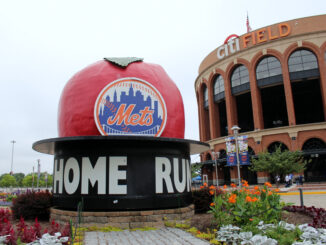Determining the best baseball team of all time is a neverending debate; no one will probably ever agree on a single team. Is it the 1927 New York Yankees? Maybe, it’s the 1906 Chicago Cubs, or my favorite, the 1986 New York Mets.
Without a doubt, those three, and at least two dozen more, would be in the running when it comes to choosing the best baseball team. But, I’m partial to another team, one that rarely makes the short list of great teams. The 1884 Providence Grays, the first world champions of baseball, sort of.
Like so many pre-1900 baseball teams, the Providence Grays are relegated to the history books and usually dismissed when it comes to discussing the greatest baseball teams. So, for the sake of discussion, and history, here’s a rundown of some of the best early baseball teams and their records:
1884 Providence Grays (84-28): Charlie “Old Hoss” Radbourn, the ace of their pitching staff n and basically the only member of their pitching staff by the end of the year n won 59 or 60 games, depending on the source. The team went on to defeat the New York Metropolitans in what many consider the first World Series.
1884 St. Louis Maroons (94-19): Looking at the win-loss record alone, it would be impossible to exclude this team n 94 wins is enough to win a division today. Considering the Maroons lost only 19 games, the feat is even more impressive. Boasting an .832 winning percentage, the Maroons topped the Union Association. Too bad for their legacy, they didn’t play the Grays in the inaugural championship. It would have been interesting to see Charlie Sweeney, who pitched for the Grays in the early part of the 1884 season, face off against Radbourn.
1880 Chicago White Stockings (67-17): Led by Hall of Fame members King Kelly and Cap Anson, the White Stockings won the division by 15 games. Larry Corcoran won 43 games and sported a 1.95 ERA. Tallying a .700 winning percentage or greater four times in the 1800s and continuing to dominate baseball in the first decade of the 1900s, the Chicago franchise could be considered baseball’s first dynasty.
1887 St. Louis Browns (94-40): Led by three 20 game winners, including Silver King who went 32-12 and Bob Caruthers who won 29 games and hit .357 while splitting time on the mound and in the outfield, the Browns won the American Association by 14 games over the Cincinnati Red Stockings.
1875 Boston Red Stockings (71-8): True, this team predates the National League, but any team that won almost 90 percent of its games deserves a mention. Al Spalding went 55-5 with a 1.76 ERA. Five batters hit over .300, including catcher Deacon White, shortstop Ross Barnes and first baseman Cal McVey, some of baseball’s earliest superstars. The Philadelphia Athletics, the second place finisher, put up a spectacular year, winning 53 games and losing only 20, but lost out on the National Association crown because of the unmatched year of the Red Stockings.
Certainly, there are other clubs that warrant a mention: the 1886 Detroit Wolverines, the 1897 Boston Beaneaters, the 1885 New York Giants and the 1884 Metropolitans to name a few. But that’s what makes this discussion so fascinating n there are so many great teams of the 19th century that have been all but forgotten. But a debate like this makes baseball aficionados, particularly those not as familiar with the early years of baseball, take a look back in the history books.
It would be interesting to see how these teams would stack up against some of the greatest 20th century teams. Perhaps, there would be too many obstacles, primarily in the differences of how the game was played over the decades, to truly speculate. But wouldn’t it be amazing to see how Spalding or Radbourn might pitch to Babe Ruth or Lou Gehrig?
I think it would be fair to say, it wouldn’t be an intentional walk.




